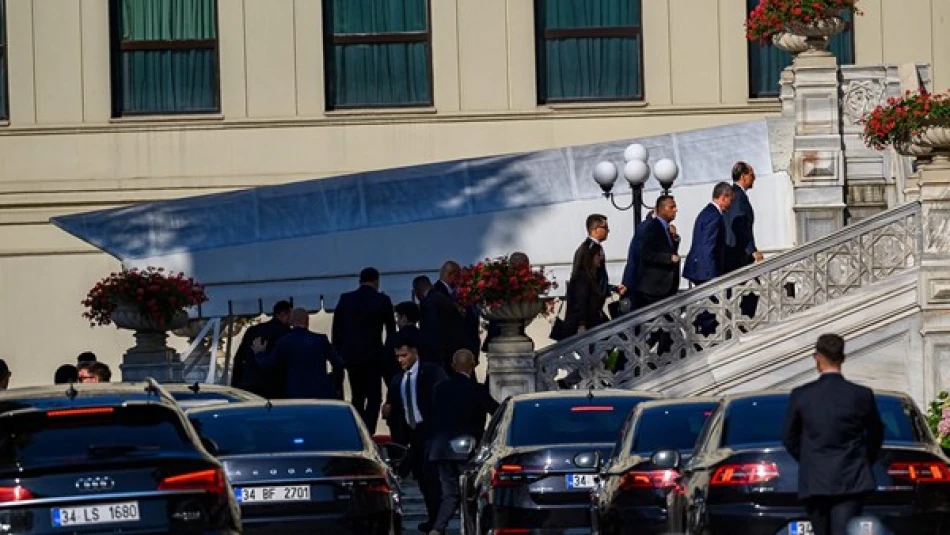
Ukrainian and Russian Delegation Heads Convene for Crucial Istanbul Talks
Russia and Ukraine Resume Direct Peace Negotiations in Istanbul
Russia and Ukraine have initiated direct bilateral talks in Istanbul as part of renewed peace negotiations between the two nations, marking a potentially significant diplomatic development in the ongoing conflict. The high-level discussions involve the heads of both delegations meeting face-to-face, according to sources close to the Russian delegation.
Strategic Significance of Istanbul as Neutral Ground
The choice of Istanbul as the venue underscores Turkey's growing role as a mediator in the Russia-Ukraine conflict. Turkey's unique position—maintaining diplomatic ties with both Moscow and Kyiv while being a NATO member—has positioned President Erdogan's government as one of the few actors capable of facilitating such discussions.
This follows Turkey's previous successful mediation efforts, including the Black Sea grain deal that allowed Ukrainian agricultural exports to resume through Turkish-monitored corridors. Istanbul's selection also reflects its historical significance as a crossroads between Europe and Asia, making it symbolically appropriate for East-West diplomatic engagement.
What Direct Talks Could Mean for the Conflict
Breaking the Diplomatic Deadlock
The resumption of direct negotiations represents a departure from the proxy communications and international forum discussions that have characterized much of the diplomatic efforts since the conflict escalated. Direct bilateral engagement typically signals both parties' willingness to explore concrete compromises rather than maintaining purely symbolic positions.
Economic and Market Implications
Financial markets often react positively to genuine peace initiatives, particularly in conflicts affecting global commodity supplies. Any substantive progress could impact energy prices, grain futures, and broader European economic stability. Defense contractors and reconstruction-focused companies will likely monitor developments closely, as peace could shift investment flows significantly.
Historical Context and Precedent
Previous rounds of Russia-Ukraine negotiations, including early talks in Belarus and various international summits, have yielded limited concrete results. However, direct bilateral engagement has historically proven more effective than multilateral forums for resolving territorial disputes, as seen in various post-Soviet conflicts.
The timing of these talks may reflect changing military dynamics on the ground, economic pressures on both nations, or shifting international diplomatic priorities as global attention increasingly focuses on multiple regional conflicts simultaneously.
Challenges and Realistic Expectations
While any diplomatic engagement represents progress, fundamental disagreements over territorial integrity, security guarantees, and war reparations remain substantial obstacles. The success of these Istanbul talks will likely depend on whether both sides are prepared to move beyond their stated maximalist positions.
The international community, particularly European allies and the United States, will be watching closely to ensure any potential agreements align with broader principles of territorial sovereignty while creating sustainable pathways to conflict resolution.
Most Viewed News

 Layla Al Mansoori
Layla Al Mansoori






